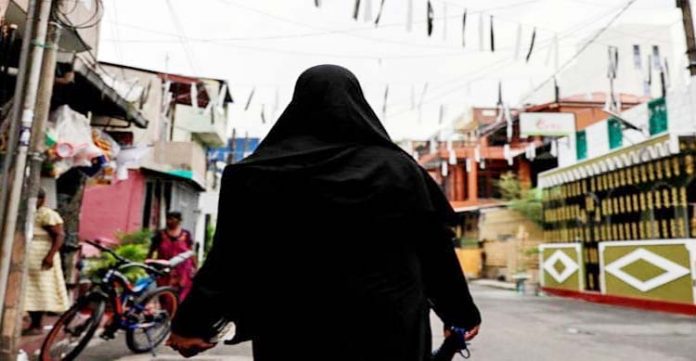Sri Lanka Government Minister recently made statements affecting the minority Muslim population in the country. The new laws are reportedly on the basis of “national security”.
Sri Lanka Bans Alleged “Religious Extremism”
As per the statements made by Sarath Weerasekera, Minister for Public Security the Muslims never wore burqa in the earlier days. He said that anyone wearing them now was a sign of “religious extremism”. And the country is putting a ban on the same.
ALSO READ: Mahinda Rajapaksa sworn in as Sri Lanka new PM
On Friday this week, the government put a ban on the wearing of burqas by women on the grounds of “national security”.
Weerasekera further said that they are planning to ban over a thousand Islamic schools that are reportedly going against the national educational policy. He said that no school can open and teach anything they want.
Sri Lanka President Promises To Remove Extremism
However, this is not the first time when Sri Lanka has put a ban on burqas. Back in 2019 as well, the country did put a ban on wearing Burqas. This was after there were bombings over churches and hotels by the Islamic militants. The incident killed over 250 civilians.
In the same year, Gotabaya Rajapaksa was elected as the President after promising to remove extremism in the country. He had a decades-long career as the defense secretary in the North of Sri Lanka.
However, Rajapaksa has been accused of rights abuses during the war. But he has denied all the charges.
ALSO READ: Sri Lanka ruling party wins parliamentary polls
The government’s ban on the burqas and schools is followed by a mandate that was released last year for the Covid 19 victims. The law said that Covid 19 victims shall be cremated instead of burying them which was against the wishes of the Muslims.
But the ban was lifted this year after the United States of America and many other International Rights Groups criticised the move.







